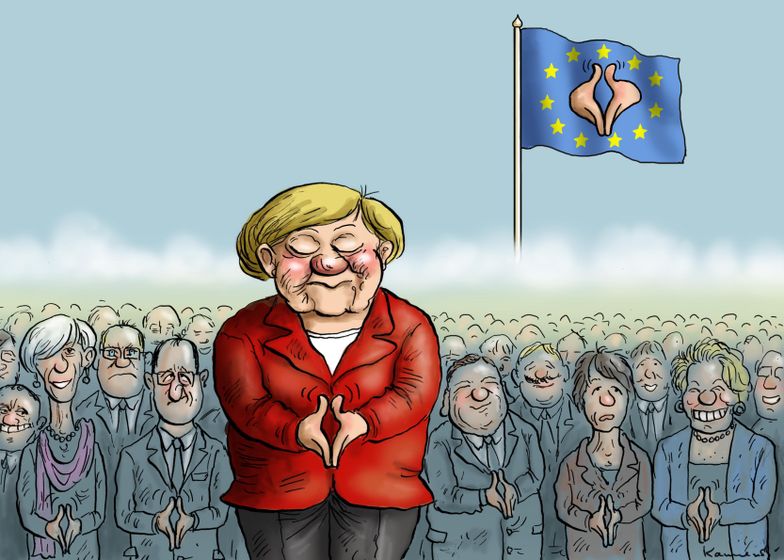For Germany in particular, government and civil society’s welcoming of Syrian refugees continues the country’s quest for redemption from the unspeakable crimes of their grandparents and great-grandparents. The German people’s attempt at redemption is a secular cause played out on a Biblical scale, because the Holocaust was a crime against not only humanity, but against human civilization itself. For religious believers, it was a crime against God. In some sense, “Germany” may never redeem its crimes, but “Germany” is not today’s German people, difficult as that may be for some people to accept.
Germans for decades shied away from international political leadership. Its leaders made of Germany’s economic success and generosity in financing European integration (plus its unyielding political support of Israel) the basis of its international influence. During these decades Germany’s foreign economic generosity was its foreign policy. With the French, Germany organized the complexities of the European Union’s internal contradictions into a vision of Europe’s renewal, the possibilities of resurrection. German money underwrote France’s political leadership. The two countries produced leaders of vision on the scale of history: Konrad Adenauer and Charles de Gaulle; Helmut Kohl and François Mitterrand. Today no other country’s political and business elites, not even those in France, are thinking as deeply as Germany’s about how to move European integration forward in a strategy that combines national interests and Europe’s necessities. Germany’s partner countries want more rather than less German leadership, an astonishing international recognition of redemption. Germany’s willingness to accept large numbers of refugees is only the most recent act of this attempt to prove that the “German problem” is history.
Accepting large numbers of refugees is also good for Germany itself. Along with Europe’s other demographically withered countries, Germany, whose birth rate is among the lowest in the world, needs significant immigration to finance its future, while doubters and racism have rendered it thus far impossible. From the point of view of German interests, Syrians (and many opportunist refugees) are an educated population, willing, indeed desperate, for jobs and acceptance. Ties to the Syrian homeland will remain strong, but gratitude to Germany will be real. America’s experience, despite current electoral posturing, shows that immigration is a boon to national vibrancy. Why not for Germany and Europe as well? Furthermore, a significant Syrian minority population will increase social pluralism, among other things diluting domestic focus on Germany’s Turkish minority.
A few hundred thousand or even a few million new immigrants won’t solve Germany’s or Europe’s demographic problems. But the irrepressible urgency of the current refugee crisis is accomplishing what politics failed to do — lancing a boil, unlocking a self-defeating national stalemate. In contrast, Germany’s reception of hundreds of thousands of asylum seekers fleeing former Yugoslavia’s wars in the 1990s was not an economic necessity, because the demographic deficit was not so evident then. Taking in Croats, Serbs, Bosnians, and others was a political act of redemption and, for Germans themselves, an act of national catharsis. Yet strong internal opposition to immigrants did not abate.
Accepting Syrians inevitably increases the need for German leadership in Europe’s response. Germany’s government, led by the indomitable Mrs. Merkel, is stepping up to the task successfully. (It will accept at least 800,000 asylum seekers in the coming year, far more than any other EU country and probably not the end of what Germany will do.) The trouble with German redemption, however, is that dealing with a problem may not solve it but increase it. I often wondered during years of teaching European politics how long the German Problem would endure, at least in people’s minds. When would redemption be complete? I don’t know the answer, but at a certain distance from the event, history makes such questions irrelevant.

